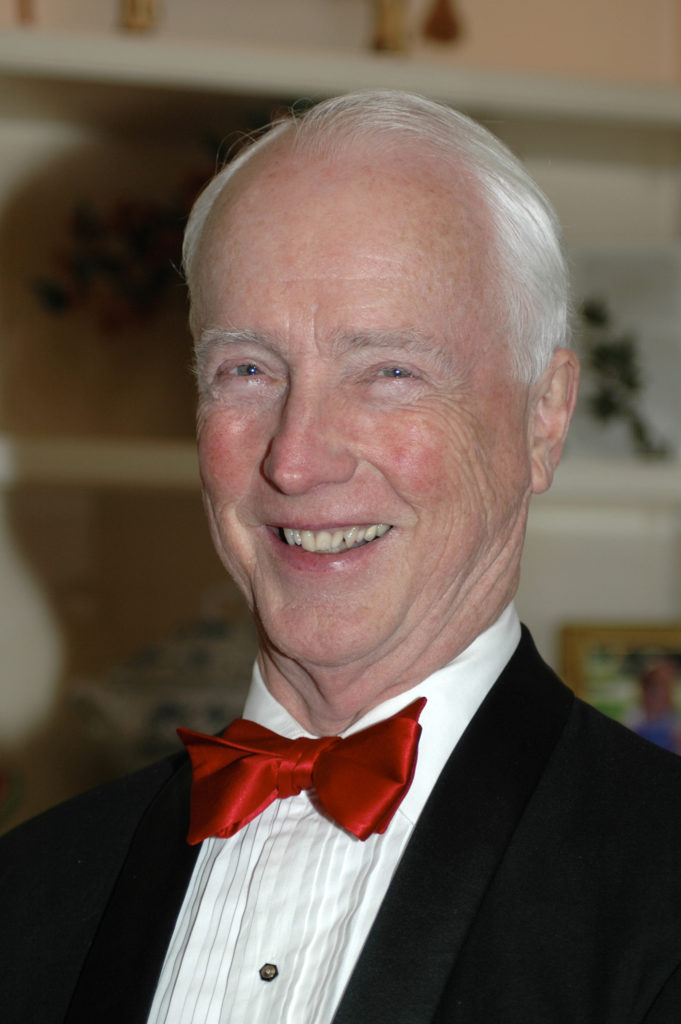Kenneth E. Scott LLB ’56

Kenneth E. Scott, the Ralph M. Parsons Professor of Law and Business Emeritus and a senior research fellow at the Hoover Institution, passed away on Sunday, June 19, 2016.
Scott was an active scholar with a brilliant mind who was researching and writing up until the week before he passed.
His legal career began in 1956 when he graduated from Stanford Law School and moved first to New York to practice law at Sullivan and Cromwell and then to Los Angeles where he practiced law at Musick, Peeler and Garrett. He was active in politics, serving as a field secretary in L.A. for Pat Brown’s 1962 gubernatorial campaign against Nixon. In 1961, he was appointed chief deputy savings and loan commissioner of California, a position he held until 1963. He was then appointed general counsel of the Federal Home Loan Bank Board (FHLBB), which took him to Washington, D.C. He was proud of his service at FHLBB, where he drafted and lobbied hard for passage of the Financial Institutions Supervisory Act of 1966.
“There was a need to beef up the oversight and enforcement power of the FHLBB, so I spent two years drafting and selling the Financial Institutions Supervisory Act, getting the banking agencies behind it,” Scott said in a 2012 Stanford Law School interview. “We got the federal administration behind it—and it became part of the program of the president. It changed the regulatory enforcement authority of all banking regulatory agencies.”
Scott left FHLBB in 1968 when he was recruited to the faculty by Dean Bayless Manning. Stanford Law had just launched its first joint-degree program when he arrived—making it the first four-year program in the nation leading to a JD/MBA. He served as an advisor and mentor to JD/MBA students for many years and taught banking regulation, corporations, securities law, and administrative law as part of a growing law and business faculty that helped to catapult Stanford Law from a regional school to one recognized nationally and internationally. In 1983, he was appointed the first Parsons Professor of Law and Business; the chair was the first endowed professorship combining law and business at any major American law school. He retired from teaching in 1995 after 27 years on the faculty, but he remained an active scholar, writing and editing influential papers and books.
“Ken’s ambition was to glean insights from academic understanding of economics, finance, and politics and to bring them to bear on pressing policy questions, such as the design of financial regulation. The influence of his work illustrates the meaningful contributions that a scholar can make when he combines deep learning with a capacity to contribute to important policy debates,” says Stanford Law Dean M. Elizabeth Magill.
“As economics was gaining influence in other areas of legal academics in the 1970s and 1980s, Ken applied economic concepts to banking. He was one of the first scholars, and perhaps the first legal scholar, to do so,” says Professor Michael
Klausner. “And he continued until today—publishing a book with Hoover Institution colleagues just a few months ago. Ken remained one of the few legal academics with a mastery of the bank regulatory field.”
Scott was a member of the Working Group on Economic Policy at the Hoover Institution, which in the wake of the financial crisis established the Resolution Project. He chaired the project, bringing together legal scholars, economists, and market practitioners whom he recruited from the U.S. and the U.K. He worked closely with former Secretary of State George Shultz and Stanford Professor John Taylor—the three co-editing Ending Government Bailouts As We Know Them, which was published by early 2010. “Under Ken’s leadership, the Resolution Project developed the very influential ‘Chapter 14’ bankruptcy reform proposal, which is now written into legislation that has passed the House of Representatives,” says Professor Taylor. “In a short span of time, he edited three books on this subject. Without Ken’s dedication, rigorous thinking, insistence on excellence, and genuine good-nature, these scholarly and practical contributions would have been impossible.”
“Ken was one of the country’s leading experts in understanding the ‘failure process’ for large banking institutions. He was active in suggesting reforms that would, at once, reduce the risk of failure and make it easier for society to navigate through those failures if they unfortunately occurred,” says Professor Joseph A. Grundfest. “Ken was a great scholar, teacher, and friend. We’ve lost one of the most creative and constructive thinkers on a public policy problem that’s remarkably important for the future of the global financial system.”
“Ken Scott was a man of remarkably broad interests, curiosity, and insight. Whether the subject was the role of the Federal Reserve, the latest decision of the Supreme Court, the details of Dodd-Frank, or the legal issues swirling around Obamacare, Ken would spot the anomaly or pose the question that penetrated to the heart of the matter. And always with humor and logical clarity,” says Professor Michael W. McConnell.
“Ken was known for his wry sense of humor, and he retained this even as he suffered through a series of medical setbacks during the past two years,” says Professor Mitch Polinsky.
He leaves behind his wife, Sunny Scott; his son Jeff and daughter-in-law Linda and their children Kenneth, Christopher, and Nicole; his daughter Linda and son-in-law Maury and their children Maura and Ellie Furness; his son Clifton Scott; his stepdaughter Shaler and son-in-law Bob and their three children Zoe, Brody, and Dillen Barnes; and his nephew Brian Johnson and his wife, Joanie.
